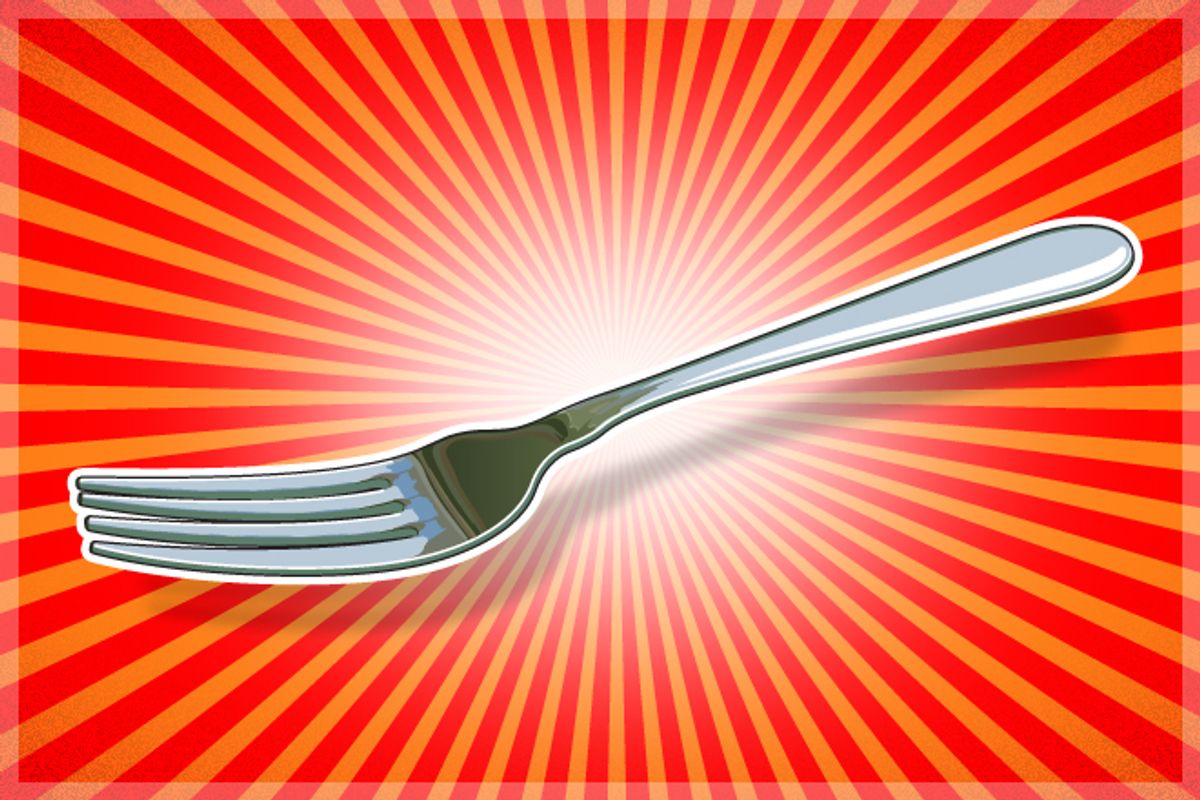Judging by the ennui flooding my Twitter feed from journalists covering the Consumer Electronics Show this week, nothing could be more dreary than getting your employer to send you to Las Vegas to hobnob at industry parties and be bludgeoned with the latest irrelevant developments in TV technology.
And then there's the smart fork.
Yes, the smart fork, decribed by its creator, HAPILabs, as "a connected fork that helps you eat at the right time and right pace," is the talk of CES.
More words have been spent mocking the product than actually describing what it does, but as far as I can tell, the HAPIfork vibrates gently when it decides that you are eating too quickly. Data on the speed at which you are gorging yourself can also, of course, be uploaded to the Web, where, presumably, you can compare your ridiculous eating habits with those of your peers.
HAPILabs describes its mandate as "helping individuals in the 21st century take control of their HAPIness, health and fitness through applications and mobile connected devices." That's all fine and dandy. As someone who just a few days ago declared his intention to use a smartphone weight loss tracking app to shed some pounds, I'm in a weak position to fulminate against sentient cutlery.
And yet, I still feel reasonably confident that the world doesn't need smart forks for our civilization to advance forward. And I'm suspicious that the real story here is the brilliance of HAPILabs' marketing team, who have deftly turned CES into a coming out party for their brand. I raise my (dumb) fork to you, HAPILabs. Well played!



Shares